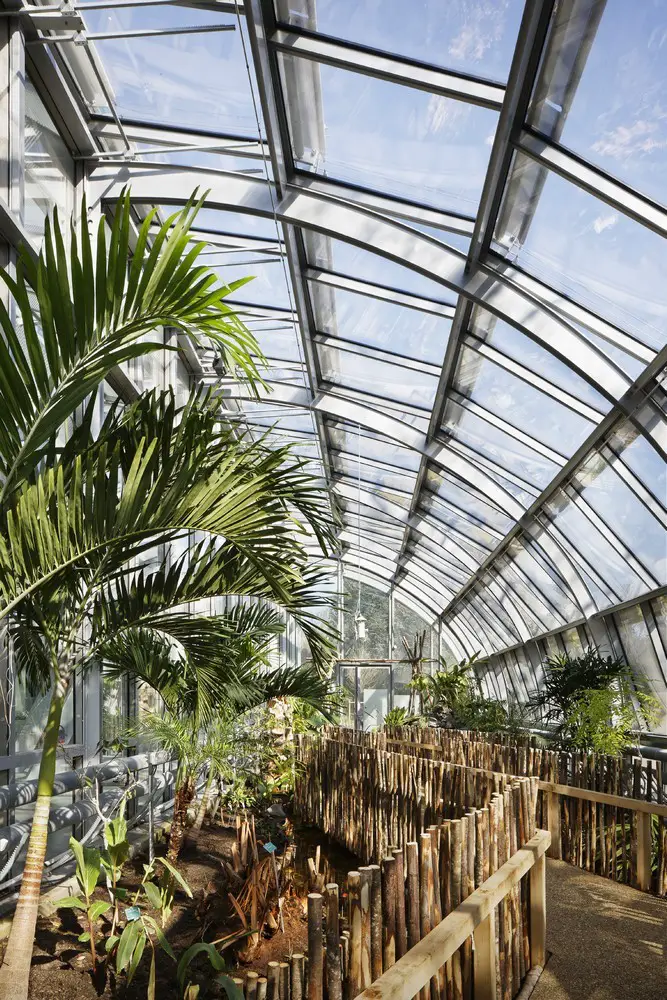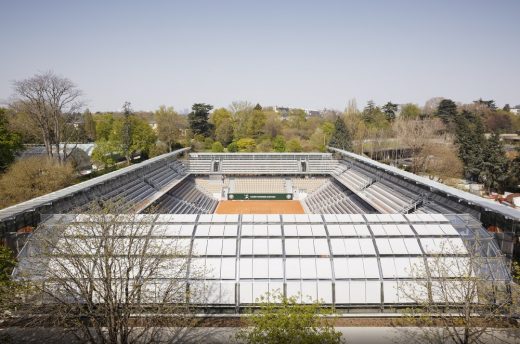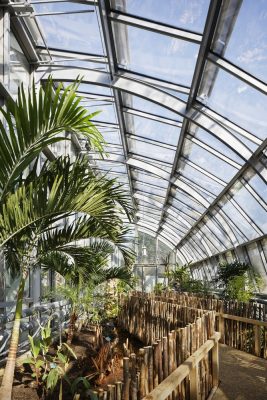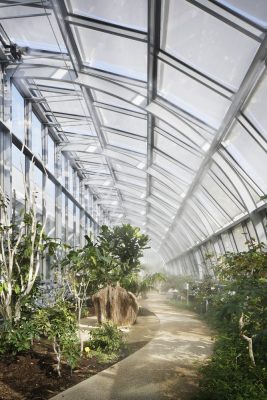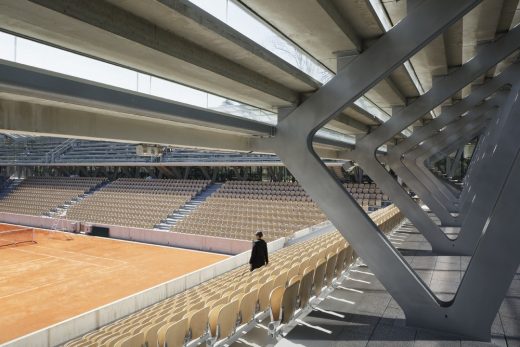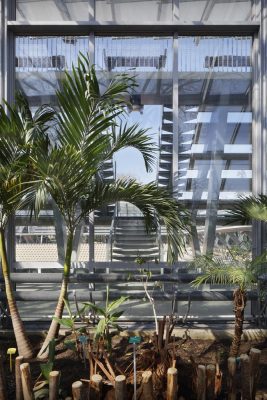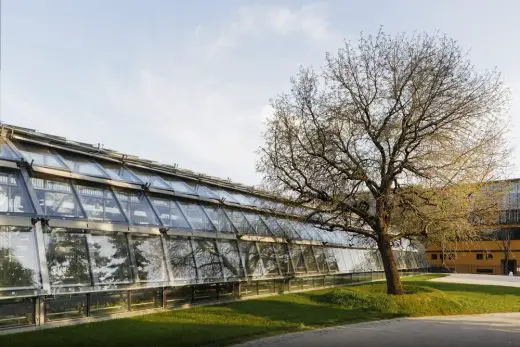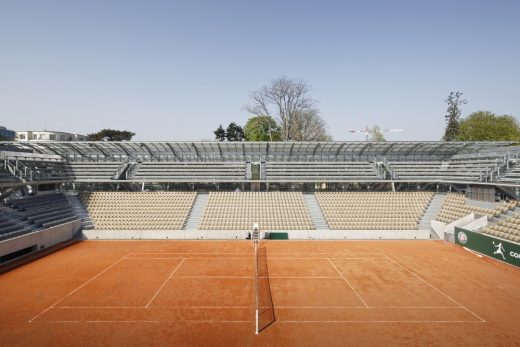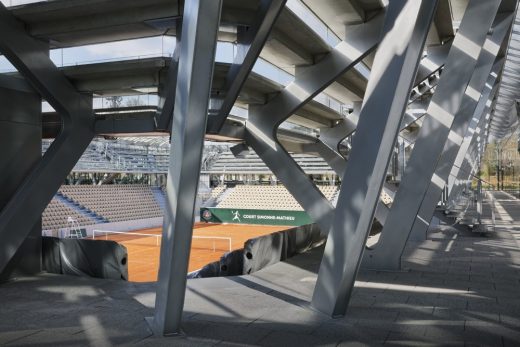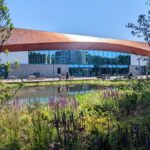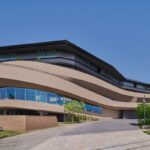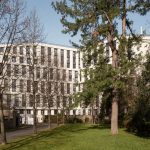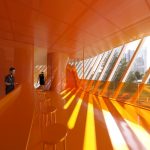Simonne-mathieu Tennis Court, Parisian Greenhouse Buildings, WTA French Sports Architecture Images
Simonne-mathieu Tennis Court in Paris
Leisure Building Project in Capital of France design by Marc Mimram Architecture & Associés
21 May 2019
Architect: Marc Mimram Architecture & Associés
Location: Paris, France
Court Simonne Mathieu Paris
The Jardin des serres d’Auteuil built in the nineteenth century is characterized by the botanical greenhouses built by Jean Camille Formigé, architect for the garden walks and plants department of Paris (Service des Promenades et Plantations), who created a historical landmark made of steel and glass emblematic of the architecture of the time.
By contrast, the eastern part of the garden is marked by the presence of technical buildings and temporary greenhouses of no cultural interest. The sports project of the Fédération Française de Tennis and the Direction des Espaces Verts et de l’Environnement de la Ville de Paris takes its place here based on 3 characteristics: – build a high-performance building for sport and its public – improve the botanical character of the garden by building new greenhouses – enter into dialogue with Formigé’s historic buildings
The opportunity is thus offered to improve the situation in every sense of the word. That of the garden, by embellishing the eastern part in connection with the boulevard d’Auteuil to create a unity which, between the contemporary garden and the boulevard d’Auteuil, can dialogue with the original composition of greenhouses by removing the impact of the storage areas.
The garden this way should find greater coherence. The construction of the new greenhouses is based on a new botanical project to explore the flora of four continents (America, Asia, Africa and Oceania) echoing the five historic greenhouses dedicated to endangered ecosystems.
The sports project of the Fédération Française de Tennis is coherent and the construction of the new tennis court is in dialogue with the existing buildings based on a contemporary vocabulary. The Simonne-Mathieu court is both a showcase for high performance sport and a renewed botanical development.
A Building Integrated To Its Garden
While the building is developed perimetrically to the existing tennis court prompting the perambulation of the public through the new greenhouses, it is no less orientated in its relationship with the historic garden.
To the North, through the contemporary garden, the tennis court is in direct connection with the garden of the poets from the Porte d’Auteuil.
To the South, behind its gated park fence, the stadium appears as a showcase along the boulevard d’Auteuil facing the Molitor Swimming Pool and the tennis courts of the Jean Bouin training stadium.The new gate could constitute, beyond the tournament period, a specific access for the uses that the facilities would have throughout the year.
To the East, the garden maintenance areas are reorganized in a more inconspicuous manner.
To the west is the direct link to the main site and Gordon Bennett Avenue, amongst millstone buildings of very different functional status and open to different audiences, especially during the tournament.
Thus, the new Simonne-Mathieu tennis court must at the same time maintain a strong coherence in relation to the gardens and clearly define itself along enhanced public access and circulation routes.
A Welcoming Building Open To The Public
Two periods will be distinguished in the life of this building, that of the tournament of Roland-Garros and that of its situation within the garden all the year round. The qualities of the garden, its horticultural collections, its botanical diversity, will be made accessible to a large number of visitors and will be open for everyone’s pleasure.
Public flow management is a major issue in the dialogue between the facility and the garden. During the period of the tournament, the millstone buildings of the orangery and the florist find in their program definition a resonance with the use of the new Simonne-Mathieu tennis court.
Outside the tournament period, the new tennis court will be part of the public circulation route through the greenhouses. Thanks to the Direction des Espaces Verts et de l’Environnement de la Ville de Paris, a carefully landscaped presentation of newly formed biotopes and the botanical qualities of the new project promote a natural pedestrian movement inside the greenhouses.
It is during these two times of the year, at these two rhythms, that the building addresses very different functionalities and circulation routes providing its very particular quality.
A New Sport And Nature Concept
The sports facility is not autonomous here, closed in on itself, but is on the contrary derived from and in dialogue with its environment.
By this occasion is defined a new concept, a high-performance sports facility in relationship with nature, that of the site, that of the garden, but also that of the biotopes in the greenhouses.
It is a unique project that will evolve here, it belongs to the earth by the part of the tennis court which is sunken 4.5 meters deep, it belongs to the sky by the glass roof that protects the upper tribunes.
Here, the gentle undulation of the glass canopies protects the public in the upper stands from inclement weather, creates shade and protects the tennis court acoustically from ring road noise pollution.
At a comparable height as that of the historic greenhouses, it is between earth and sky that extends a vegetal horizon to the view of the public from the court and the greenhouses.
Structure And Transparency
The Court Simonne Mathieu project is oriented in the same direction as the historic greenhouses.
On the east and west sides, there are two big 70 m long greenhouses oriented in the north-south direction and prolonged by the canopies of the upper tribunes.
On the north and south sides, two 40m wide greenhouses are situated.
If the architecture of the nineteenth century was marked by the development of steel and glass, the project proposes today to translate this concern into a contemporary vocabulary as an elegant variable inertia steel structure supporting scaled glass elements which is possible to build today while expressing contemporary know-how.
Depending on the orientation, the glass is fritted to protect spectators without throwing shadows on the tennis court.
The project pays particular attention to environmental characteristics, obviously by the bioclimatic nature of the facilities for plants, but also by the economy of means, the economy of materials and the attention paid to the construction of this exceptional building.
The transparency and lightness of this structure and its cover specifically address the nature of the plants they host but also the reception of the public and athletes.
It is an “athletic and constructive jewel” that takes its place in this garden with delicacy, thus improving the plant exposure scheme and showing how the improved Simonne-Mathieu tennis court can be functional while entering into a dialogue with nature in the garden it houses.
A Project Based On Exemplary Dialogue
The construction of this new tennis court amongst the greenhouses had to transcribe the dialogue it could weave with its history, its environment and its program.
With its history, to enter into dialogue with the historical monument which it borders in a contemporary writing of greenhouses and light structures.
With its environment, by the attention paid to built scale, to the flow of different audiences, to different times of the year, and by the treatment of the transparencies and the materiality of the glass facades.
With its program, by the double characteristics of botany and sports. The new tennis court surrounded by greenhouses reinterprets and extends the existing botanical garden, by the constitution of biotopes and differentiated atmospheres according to the four orientations of the greenhouses.
Simonne-mathieu Tennis Court, Bourse – Building Information
Project Supervisor: Marc Mimram Architecture & Associés
Partners:
Marc Mimram Ingénierie: structure and économy
INEX: Fluid and environment engineering
AARTILL: light
AAB: acoustic
VS-A: facades
Project team: Marc Mimram Architecture Ingénierie – Martin Fougeras Lavergnolle, Francis Jacquiod, Jacques Durst
CLIENT: Fédération Française de Tennis
CONSTRUCTION FIRMS Vinci : demolition – earthworks – main construction work – architectural trades
Viry-Fayat : metal frame – light facades – locksmith / metal work, Sfee : electricity, Foret : plumbing – heating system – air treatment, Richel : greenhouses equipment, Etablissement Jean Lefebre : external works and landscaping
PLANNING: 2013 – project delivery in 2018
AREA: 5 300 sqm
KEY DATA: 5000 seats 1435 sqm greenhouses 5000 sqm double glazing (125 tons) 900 double glazing “fish scales” – 2800 sqm 320 tons of steel
Photography © Camille Gharbi
Simonne-mathieu Tennis Court in Paris images / information received 210519
Location: Paris, Northern France
Paris Architecture Designs
Paris Architecture Design – chronological list
Architecture Tours Paris by e-architect
, France
Architecture: Agence Patrick Mauger
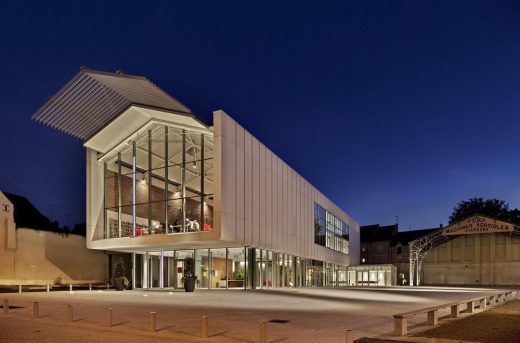
photo : Michel Denancé
Auneau Cultural Center
Gaité Montparnasse, Les Ateliers Gaité, 14th arrondissement
Architects: MVRDV
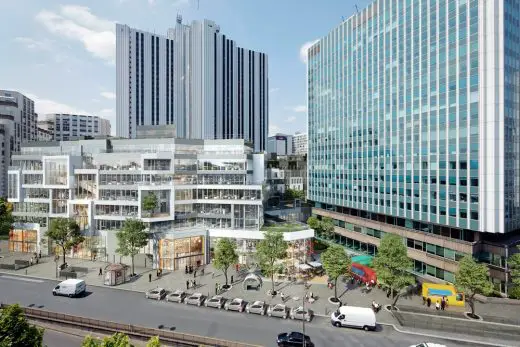
image © L’Autre Image
Gaité Montparnasse
Design: AZC Atelier Zündel Cristea, Architects
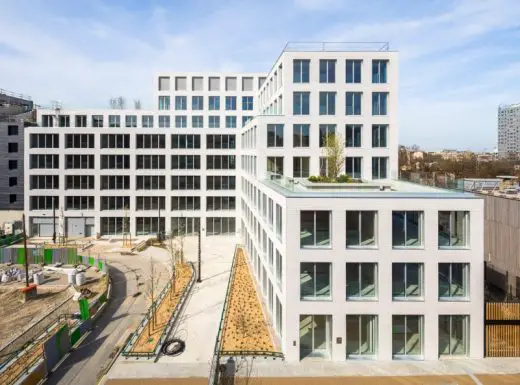
photo courtesy of architects office
Hôtel d’entreprises Binet
River Seine Park Pavilions, Lagravère Park, Colombes, northwestern suburbs of Paris, France
Design: h2o architectes
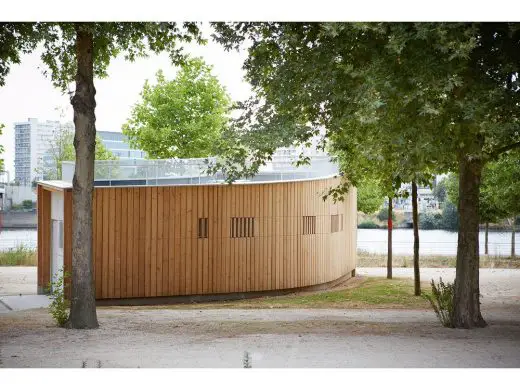
photo : Julien Attard
River Seine Park Pavilions
Paris Architecture – Selection
Tennis Buildings
Tennis Building Designs – selection from e-architect:
Sports Canopy at The National Tennis Centre
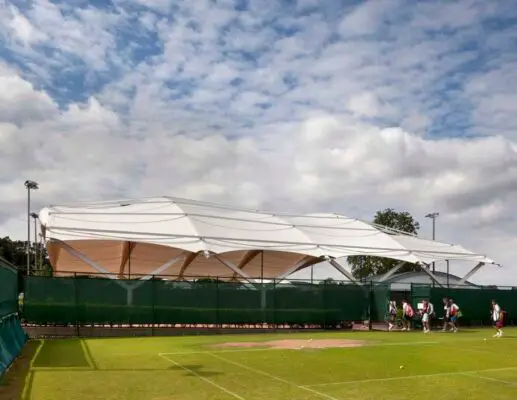
photo © Morley von Sternberg
National Tennis Centre London Roehampton
Wimbledon Masterplan at The All England Lawn Tennis Club
Design: Grimshaw
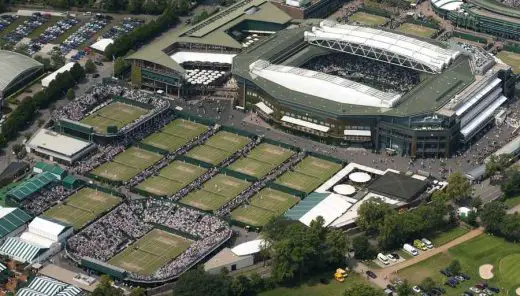
photo: Tom Lovelock / AELTC – All England Lawn Tennis Club
Wimbledon Tennis Club
Wimbledon Centre Court Roof
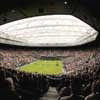
Wimbledon Retractable Roof image : AELTC
Wimbledon Tennis Club Centre Court
Comments / photos for the Simonne-mathieu Tennis Court in Paris page welcome

